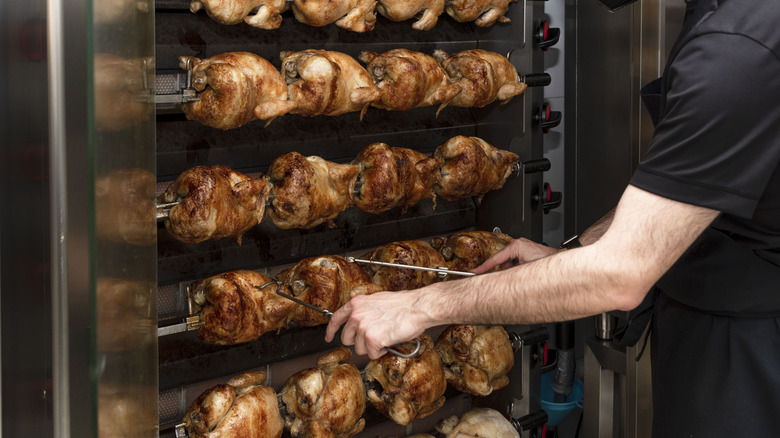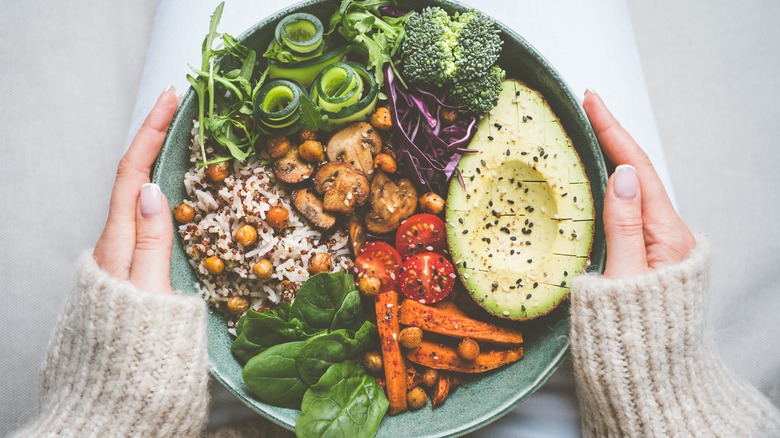The Processed Food An RDN Says You Should Stop Eating If You Struggle With Visceral Fat
For most of us, the term "processed food" conjures mouthwatering visions of crunchy snacks covered in cheese-flavored dust and juicy chicken nuggets fried to perfection. But as far as the U.S. Department of Agriculture is concerned, processed food is defined as any food that has undergone a process that alters its natural state.
Using this definition, you would be hard-pressed to find anything in the grocery store that hasn't been processed in some regard. Even foods most of us would consider healthy — like frozen fruit, fresh-cut green beans, and canned tuna — fall under the blanket of processed foods. Of course, not all processing is created equal. Some of the more heavily processed foods are so inundated with salt, artificial flavors, and chemical preservatives that they become a detriment to our health, rather than fuel for our bodies. Some processed foods can even contribute to the aggregation of visceral fat. This is the type of fat most commonly found deep in the abdomen, surrounding important organs like the stomach, liver, and heart. It's also the type of fat most likely to accumulate in the arteries.
In an exclusive interview with Health Digest, Blanca Garcia, a registered dietitian nutritionist and nutrition specialist at MIDSS, gave us the scoop on which processed food is worst for people with excess visceral fat. Her answer may surprise you.
Which food is worst for people with excess visceral fat?
Having some visceral fat is considered perfectly healthy. However, having an abundance of it can increase the risk of dangerous health conditions like diabetes, heart attack, and stroke. In the event that visceral fat has become an issue for your health, Garcia explains that cutting out all processed foods is ideal. "But if I had to choose one," says Garcia, "I would stop eating rotisserie chicken from fast food restaurants."
Garcia muses that people may wonder how a rotisserie chicken can be processed. I mean, it's just chicken, right? But she says that these sneaky little chickens are the worst. They can be highly processed with preservatives, loaded with salt, and boast an extremely high-fat content.
"The perception of processed foods are of packaged items or quick foods, but it also includes foods that are generally unprocessed but — due to the circumstances — may become heavily processed," Garcia points out.
What's so harmful about rotisserie chicken?
Rotisserie chicken may seem like a pretty inoffensive menu item in the world of fast food, but Garcia explains that idea couldn't be farther from the truth. "Many fast food locations get their food delivered in bulk," she says. "Chicken may be preserved with salt or other preservatives and that can contribute to excess amounts of salt, which may affect blood pressure or become a large load for the kidneys to process." What's more, Garcia explains that the chickens are often cooked with their skin still on, meaning that the subcutaneous fat in the chicken's skin is then added to the overall fat content of the cooked chicken.
If visceral fat is posing a threat to your health, Garcia says to cut the fast-food chicken and reach for non-starchy vegetables instead. "These foods will be jam-packed with fiber that will help trap fat from food and move it along as you have a bowel movement," says Garcia.



